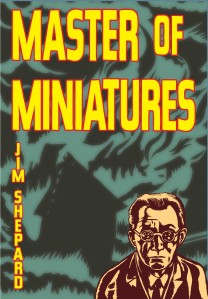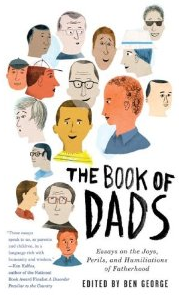As you might have read in a previous post, Jim’s story “The World to Come” has been included in the Best American Anthology this year. The story is a love story between two nineteenth century farm women and originally appeared in One Story. Here is a mini interview with Jim from the One Story issue:
Where did the idea of this story come from?
I’d come across a book chronicling the worst storms in the history of New England. (That’s the kind of book I tend to read.) I was struck, going through it, by just the day-to-day arduousness and loneliness of the farmers’ lives. That led me to other histories and journals and diaries, and I came across a farmer’s one-line notation about how sad his wife was, because her one friend had moved away.
The details of “The World to Come” feel so authentic—from the farming tools to the medicinal herbs. How much research did you do to create this world?
I started researching last June, and, though I was also doing other things in the meantime, didn’t start writing until early December.
Why did you decide to tell this story in the format of journal entries, instead of a straight narrative?
I wanted to catch if I could the moment-to-moment and day-to-day nature of 19th century farming lives, as well as how seasonally based those lives were: the importance of the weather, and their meals, and of course the drudgery. But the journal nature of the story also seemed crucial when it came to capturing all of the little ways in which the narrator has let her Tallie down.
Do you think it was only desperate circumstances that drew these women together, or was it a deeper connection? And did you know from the start this would be a love story?
Unsurprisingly, I think it was both. I do think they would have been powerfully drawn to one another even had they met under less desperate circumstances, but then, they don’t consider the circumstances particularly desperate (until the end). And almost immediately I knew it would be a love story; the question at that point became how repressed a love story it would be.
At one point the narrator, thinking of her pioneer mother (born in 1780), remarks: “I wonder now at the courage and the resourcefulness of those women who fared forth, not knowing where they were being led, to begin to chip into the wilderness the foundations of a civilization.” This story in many ways feels like a tribute to these women—and the losses they were forced to bear. The narrator and Tallie are the next generation, but their lives continue to be severely limited and contained. Is that partly what drew you to write about this time period (1850s)?
That is, yes. Once I decided to write about farm women rather than men, the unsung nature of the burden they bore seemed very clear.
One of the most striking sections is the earthquake that Dyer’s mother goes through. Why did you decide to include this story within a story?
I thought it important to have a figure in the story for another, more terrifying kind of disaster, and for how precarious farmers felt their footholds in their livelihoods (and lives) to be.
Why did you title this story “The World to Come”?
I liked the way in which our narrator early on assures us that she has stopped worrying about that notion, and then finds that Tallie has created for her an entirely new version of a world to come. And then the sadness of imagining what that world to come must look like, for the narrator, once Tallie is dead.
What is the best bit of advice about writing you have ever received?
My thesis advisor at Brown University, John Hawkes, always told me to look for the weirdness in my own work. There was plenty to find.






